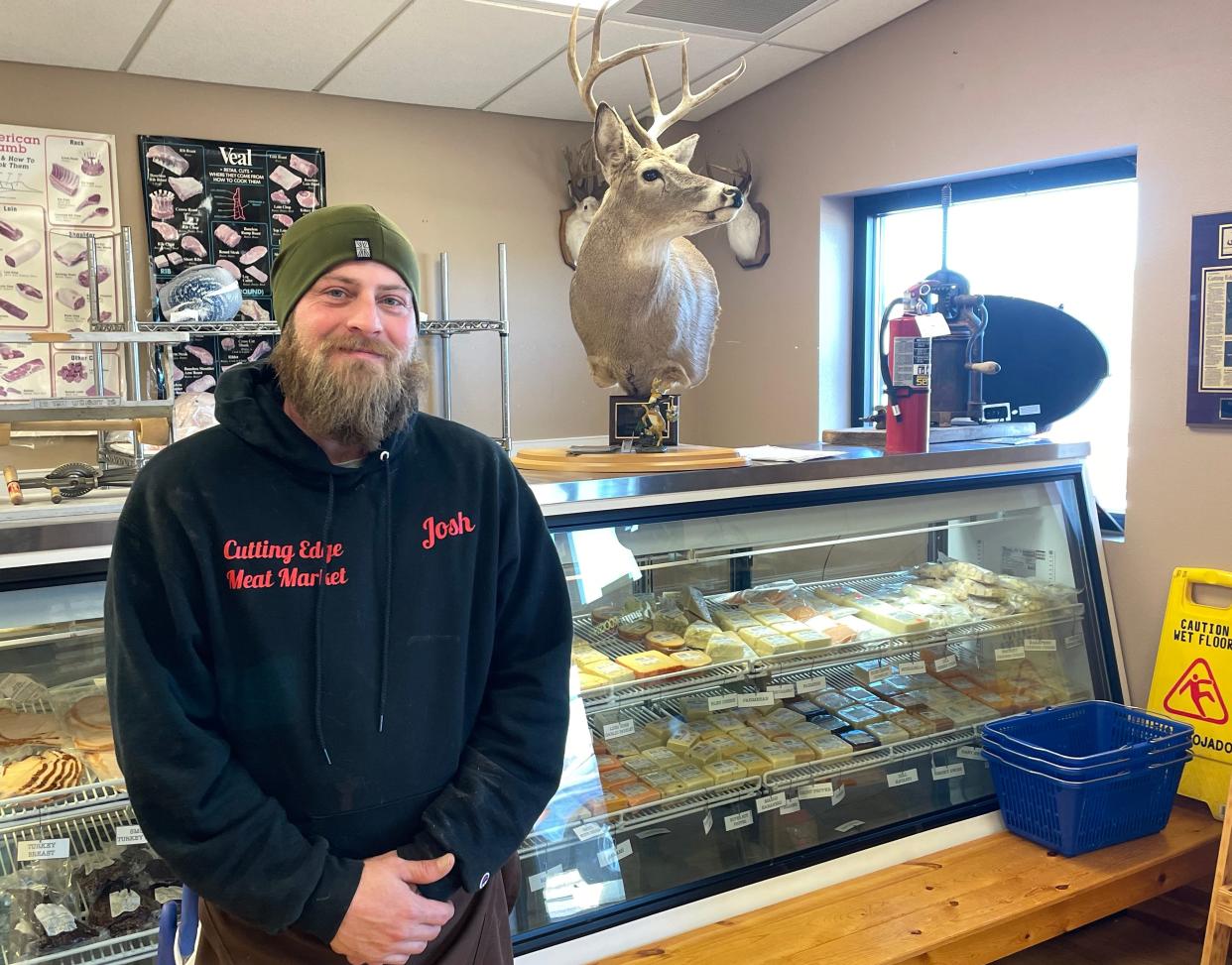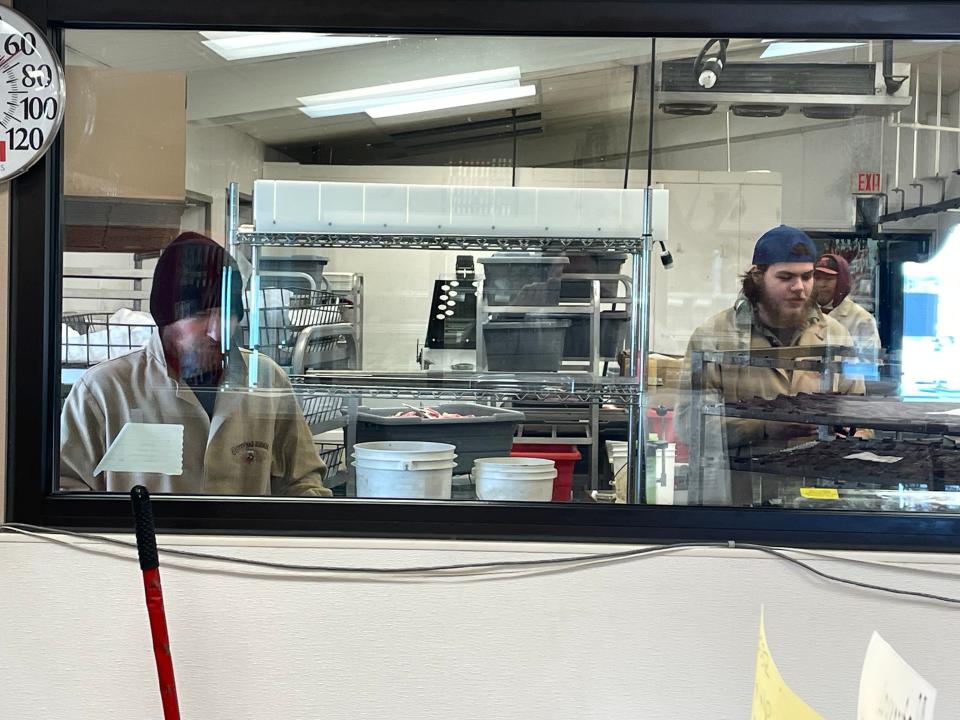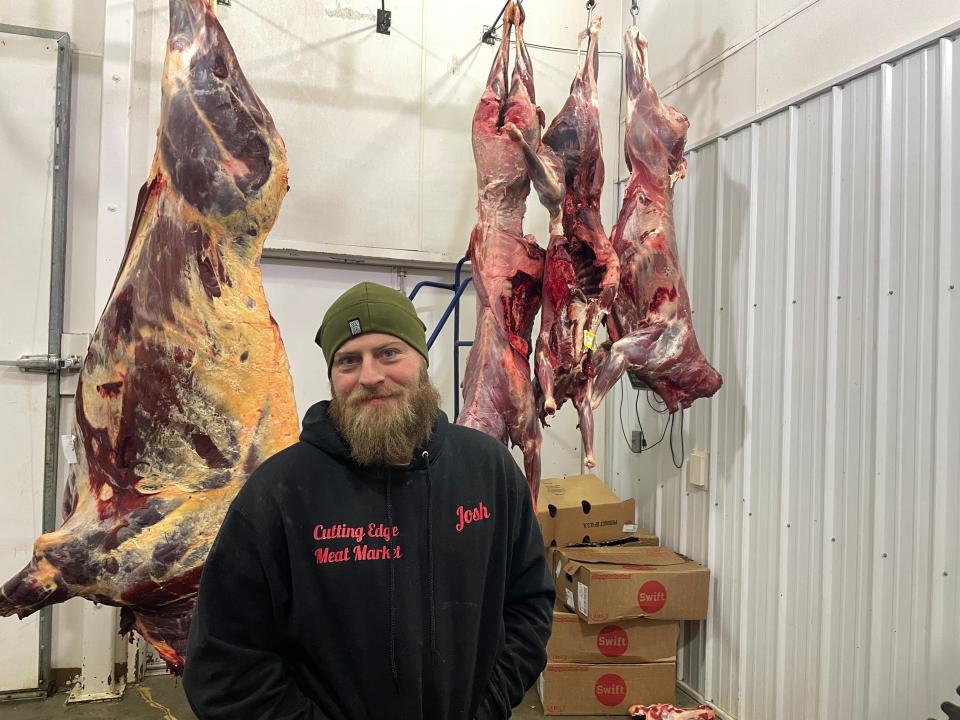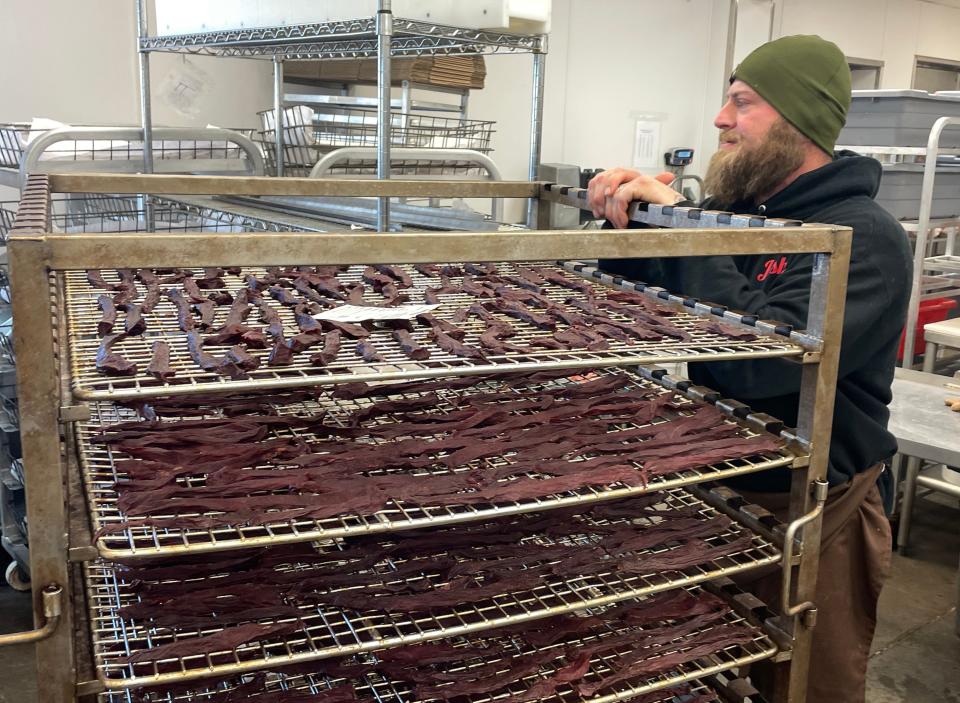Finding processing for big game tricky in South Dakota

PIEDMONT, S.D. – A sudden shortage of South Dakota butchers and meat cutters willing to process wild game has been bad news for hunters but good news for Josh Clark and the small butcher shop he manages in Piedmont.
On a recent November day, Clark walked through the work area of Cutting Edge Meat Market, one of the few butcher shops in the Rapid City area that still processes whole deer carcasses, and the workers were too busy to notice Clark ushering a guest through the cutting room and back to a pair of walk-in coolers where dozens of skinned deer killed by South Dakota hunters hung on large hooks.
The month of November is always busy for butchers who process wild game. This year, the small butcher shop 10 miles west of Rapid City is swamped, with far more hunters than usual calling with inquiries or just showing up with deer on their vehicles.
"The last few days, it’s been crazy nonstop with call after call and people dragging them in," Clark said during a mid-November interview. "We’re packed wall to wall, and we’re trying to get them cut and out the door as fast as they’re coming in.”

Some butcher shops have closed or shifted focus, while others no longer take any wild game, and a few will only process wild meat that is already skinned and deboned by the customer.
Butchers who no longer take wild game or require it to be deboned may be facing worker shortages, have higher expenses that cut into profitability, or simply do not want the hassle of dealing with wild game processing.
"The way I see it, it’s just a dying industry," Clark said. "A lot of other meat plants … don’t want to deal with the hassle and rat race of handling wild game."
The drop in processors of wild game has made it difficult for hunters – who killed about 55,000 deer and 3,000 antelope in South Dakota in 2022 – to get their animals processed and packaged. One concern is that if hunters who lack the skills or equipment to skin, quarter and debone carcasses on their own can't find a processor willing to take a whole carcass, the animals could be dumped in the garbage or left to rot in the field. Some hunters may choose to give up hunting if they know in advance they won't be able to get a full animal carcass processed.
Paul Sorum, co-owner of Renner Corner Meats just north of Sioux Falls in Renner, said he has seen higher demand for full carcass processing this year compared to others — including from hunters in nearby Minnesota — and that some hunters are growing concerned.

“When there are fewer and fewer meat processing plants like ours that are accepting full carcasses, it’s getting a lot harder for hunters to find a place to go with that deer,” Sorum said. “It would be a big problem for hunters if we ended up having to shut that part of the business down.”
The processing of a deer carcass typically costs from $100 to $175 and includes skinning, quartering, deboning and packaging of venison into convenient 1 to 3 pound packages. Deer and antelope are typically cut into roasts and steaks for grilling or pan frying and into ground meat for use in soups, stews, burgers or tacos.
Hunters who want to donate the meat from a deer or antelope to charitable food pantries across the state can work with South Dakota Sportsmen Against Hunger. Under the program, hunters with animals can contact one of roughly two dozen butchers in South Dakota and drop off an animal carcass or deboned meat for full processing. In most cases, the participating butcher shops assume the cost of processing female animals, while donating a buck typically results in the hunter paying the processing fee.
Some of the butchers enrolled in the program require that the animal be skinned and deboned before being dropped off for processing.
The wild game processing industry is not overseen or regulated by the state Game, Fish & Parks Department, which manages state hunting seasons, though butcher shops are subject to regular inspection by state and federal regulators. News Watch reached out to the GFP with an interview request and a list of questions, but a spokesman for the agency did not provide responses other than to share a link to Sportsmen Against Hunger.
The commercial butcher shops that handle wild game have long been bolstered by a network of small, home-based meat processors. However, those processors are also dropping out of the industry or slowing down.
Rex Roseland and his wife, Cheryl, have processed wild game at their home north of Rapid City for decades, but this year feels different in the need for their services, he said.

“When you get swamped, it just takes time to get caught up,” Rex Roseland said.
Hunters in the greater Sioux Falls area lost one option to process whole deer carcasses when Lee’s Meats and Sausages of Tea stopped processing carcasses and began taking only deboned wild game meat for processing, at least for this year.
But one venerable option remains for East River hunters, as Renner Corner Meats continued to take full deer, antelope and elk carcasses for processing this season, according to Sorum, a co-owner of the business.
“We’re one of the only ones around that are taking the full carcass deer right now, and I’m not sure how much longer we’re going to do whole carcasses,” Sorum said.
Sorum said Renner meats continues to take full carcasses as a service to its customers.
“We love doing it because it’s providing a service to the hunters of South Dakota and the people that come from out of state,” he said. “We have awesome products, and we love providing that customer service.”
— This article was produced by South Dakota News Watch, a non-profit journalism organization located online at sdnewswatch.org.
This article originally appeared on Sioux Falls Argus Leader: Finding processing for big game tricky in South Dakota

